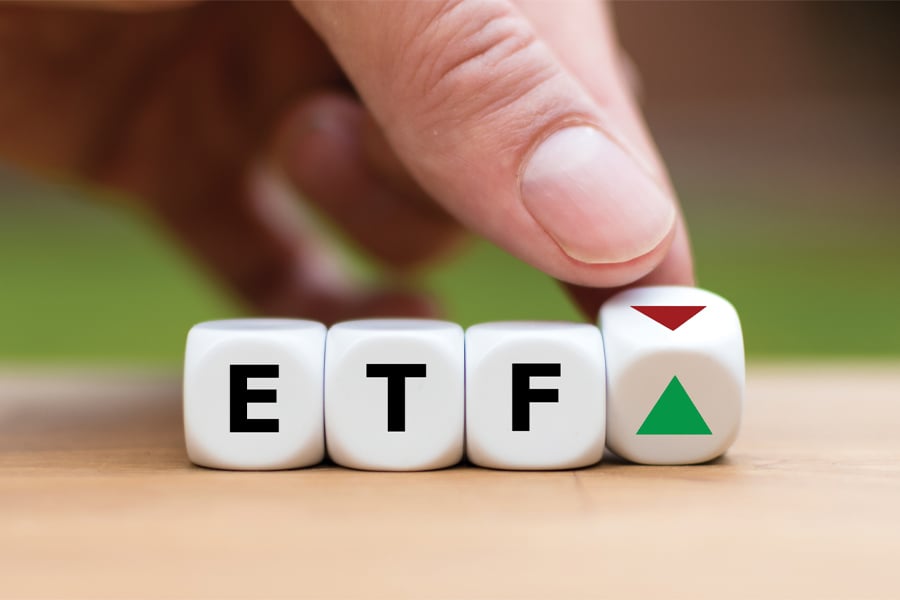

Despite a global stock selloff sparked by panic over weak US jobs data and a negative surprise from the Land of the Rising Sun, the US ETF space still managed a respectable rate of inflows overall last month, according to a new report.
Based on an analysis of Bloomberg data and its own research, National Bank Financial found US-listed ETFs managed to pull in $73.2 billion in inflows in the face of significant market volatility in August.
"As has happened in countless market crises and selloffs before, ETFs become among the few vehicles that investors buy when they’re selling everything else," the report said.
The month began with a market correction triggered by rising unemployment figures in the US and a surprise rate hike by the Bank of Japan, which sparked a wave of sell-offs across global equity markets. The report noted that “the trending increase of US unemployment figures triggered the so-called ‘Sahm rule,’...which sent panic-shocks through the stock market.”
Recession fears deepened early in the month, and US equity ETFs initially saw inflows fall short of their three-month average. Notwithstanding the sharp selloff in global markets, with US broad and large-cap ETFs still managed to attract $14.3 billion.
Real estate emerged as a bright spot among sector ETFs, gaining momentum as Federal Reserve Chair Powell's dovish town galvanized expectations of a rate cut in September. Real estate ETFs saw solid demand, attracting $2.4 billion, while utilities also benefited from the increased attention to rate-sensitive sectors.
Technology ETFs weathered the storm to pull in $5.6 billion in inflows, bolstered by strong earnings reports from the likes of Nvidia and optimism over the much-anticipated Federal Reserve rate cut.
In contrast, commodities and multi-asset ETFs experienced weakened demand – though the multi-asset category still achieved $3.8 billion in inflows – while crypto-asset ETFs also saw only marginal net inflows of $100 million during the month.
Extending the theme of rate-sensitive and defensive demand, fixed income ETFs attracted $33.1 billion in steady inflows. Mid- and long-term US Treasury bond ETFs were particularly popular, attracting $7.4 billion and $6.4 billion, respectively as expectations for future interest rate cuts solidified.
“Investors increased their allocations to longer-term US Treasury bond ETFs,” the report said, as funds like the iShares 7-10 Year Treasury Bond ETF experienced strong inflows.
Not all sectors fared well during the period of heightened volatility. Emerging market ETFs, particularly those focused on Japan and China, saw mild outflows of just over $1 billion as investors responded to economic uncertainty.
“Emerging Market and Japan ETFs are perhaps still feeling the aftershocks of these dynamics,” the report said, referring to the interplay of the unwinding yen carry trade and US recession fears.

Former Northwestern Mutual advisors join firm for independence.

Executives from LPL Financial, Cresset Partners hired for key roles.

Geopolitical tension has been managed well by the markets.

December cut is still a possiblity.

Canada, China among nations to react to president-elect's comments.
Streamline your outreach with Aidentified's AI-driven solutions
This season’s market volatility: Positioning for rate relief, income growth and the AI rebound
